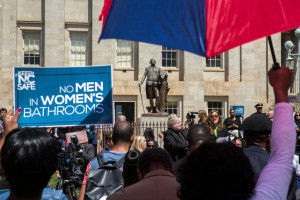The surge in debate on the labelling of transgender toilets in the United States reflects the ambiguity of the language in the US Civil Rights Act of 1964.
That legislation prohibited discrimination based on “race, color, religion, sex or national origin”. Fast-forward to 2016: does “sex” mean “anatomy” or “gender identity”?
In a further struggle, the American automobile industry, more specifically organizations such as the country’s National Highway Traffic Safety Administration, is trying to replace the commonly used word “accident” by “crash” in the road safety lexicon.
Proponents of “crash” argue that it more accurately reflects the element of human error that causes most highway fatalities in the United States. Does it really? Those who use “accident” don’t see a big difference; the word, as defined by Oxford Dictionaries, connotes an unfortunate incident that “happens unexpectedly and unintentionally”. But that doesn’t mean that no one causes it. Those who advocate using “crash”, however, suggest that by not specifying a cause, the implied meaning of “accident” is that it’s nobody’s fault.
“Accident” has a travelled past. In the early 20th century, US manufacturing and other industries used the term to exonerate themselves from the costs of caring for workers injured on the job. The idea was that workers who suffered accidents brought them on themselves, through inattention. Later, interests linked to the automobile industry appropriated the word to shift responsibility for incidents away from cars and onto the shoulders of drivers. Now, however, and in the view of many, “accident” implicitly exonerates drivers from being responsible for or the cause of mishaps. Those who want to do away with the word suggest it has “normalized mass death”, according to Peter Norton, historian and associate professor of engineering at the University of Virginia. 
On the other hand, they say “crash” resurrects “the enormity of this catastrophe“. The about-face of linking cause to the driver is manifested in the recent “Crash Not Accident” campaign.
It’s not easy to understand the point being made by those who favour “crash” over “accident”. After all, a car accident, even if it happens unexpectedly and unintentionally, is still caused by someone. And a minor incident may not be a “crash”. Yet “crash” is assumed to be the more neutral term.
Finding the right word is the bread and butter of writers and editors and those seeking to improve written and spoken language. It seeps deep down, beyond interpretation to what can broadly be accepted by all. So far, the campaign to use “crash” instead of “accident” has not convinced all. It remains a quixotic crusade for some, an obvious necessity for others.


Your email address will not be published. Required fields are marked *